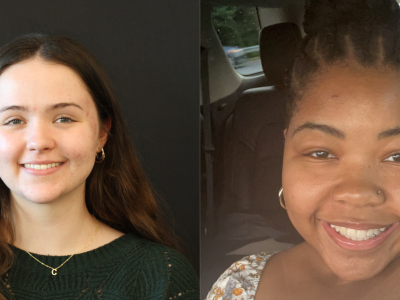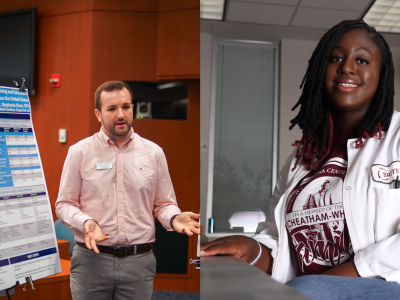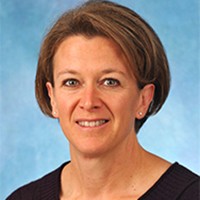January 13, 2021
 The American Association of Pharmaceutical Scientists highlights UNC Eshelman School of Pharmacy’s Gauri Rao, Pharm.D., M.S., in their Women’s Spotlight Series Q&A:
The American Association of Pharmaceutical Scientists highlights UNC Eshelman School of Pharmacy’s Gauri Rao, Pharm.D., M.S., in their Women’s Spotlight Series Q&A:
Question: What was the biggest challenge that you faced in your career? How did you overcome that?
Rao Answer: My career started as a software engineer in the hi-tech industry, but I quickly realized that healthcare was my passion. This led me to pursue a career in pharmacy. The switch from engineering to pharmacy was challenging both in terms of the mindset and the knowledge base. But my passion allowed me to enjoy the hard transition. As I neared the completion of the PharmD program, I realized that I really wanted to be on the research side of things, so I got a MS in Pharmacometrics from the University at Buffalo followed by a Fellowship sponsored by Hoffman La-Roche. Having worked closely with mentors in academia, I loved the “freedom” to pursue challenging problems that academia seemed to offer. So, I jumped headlong in to pursuing a career in academia not understanding the other challenges of writing grants to get funding, negotiating budgets, collaborating with peers etc. all essential aspects to a successful career in research at any university. I was very fortunate to have some good mentors (seniors and peers) who helped me successfully navigate the pitfalls and gain the necessary skills to access the “freedom” to pursue challenging problems!
Q: Do you have experience receiving mentoring? If you do, what is the best advice that you have received from a mentor?
A: Yes, I have been very fortunate to have had excellent mentors as a part of my mentored NIH funded training grant and as a junior faculty at the UNC Eshelman School of Pharmacy. Seeking mentors in your area of interest (i.e. they should have the technical expertise) and ideally serve as a source of inspiration. At minimum, having a mentor with whom you connect well, is very important as they can help you navigate the career terrain. A mentor vested in your success is able to provide contacts, help you make important decisions and avoid mistakes that they have learned from.
Q: When you look back at your career, would you have done anything differently?
A: I wish I had developed the art of pacing myself so as to be able to focus on learning with less stress! I think I was eager to establish myself and hence at times I might have over committed!
Q: Can you share two tips for early career professionals on how to develop their career successfully?
A: While pursuing a career your passionate about is always ideal, sometimes you may not get the exact position or field of interest you seek, however make most of it by working hard and excelling at the task on hand. Your hard work and diligence will never go unrewarded and will ultimately help you pursue your passion. Branding yourself based on work ethic, thirst for knowledge and scientific excellence will set you apart and help you throughout your career. Seeking a mentor or mentors is highly beneficial as you can gain from their experience and this could help open doors to opportunities that you did not know existed! ‘Sponsorship’ by mentors established in your field is a validation of your skills and talents and a way to surge forward.
Q: What message would you like to give the women in Pharm.Sci field? What do you feel is the best way women can help each other in this field?
A: I think having peer mentors or ‘buddies’ who are in the field is very important. This is an incredible support system that helps you stay motivated and navigate roadblocks and obstacles that you will face.
Story by the American Association of Pharmaceutical Scientists.
Latest News

Early Assurance Program inspires students from small towns

Rural Health Scholars dream to make a difference


